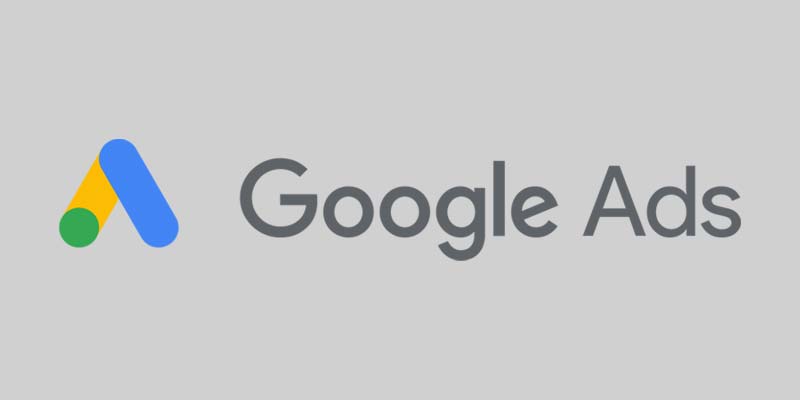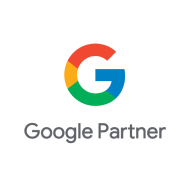Essential Steps to Mastering Google Ads: A Beginner's Roadmap

In today’s competitive digital landscape, promoting your business has never been more straightforward and impactful. Courtesy of platforms such as Google Ads. Be it a small startup or a large corporation, leveraging Google Ads can strengthen your brand’s digital footprint. It can help you attract meaningful traffic to your site. Yet, the complexity of Google Ads might appear tiring. Not anymore! Being one of the expert PPC companies in Bangalore and a certified Google partner we present to you a beginner’s guide on the essential steps to mastering Google ads.
This article will break down the basic requisites of how to become a Google Ads expert. Get ready to discover the secret formula to mastering Google Ads.
Google ads – An introduction:
Google Ads was formerly known as Google AdWords. It is an online advertising platform developed by the giant, Google. Businesses can create and run ads on Google's vast network, including the SERPs (Search Engine Results Pages) and many of its partner websites. Through Google Ads, advertisers can reach potential customers exactly. Moreover, you will be able to reach the right target audience precisely when they are searching for the required products or services that might be related to your business. In other words, you can easily boost your brand’s visibility.
Basic jargons:
Before answering the key question of how to become a Google Ads expert, it is inevitable to understand the various jargon relating to the same. Almost every brand aspiring to promote its business through Google Ads should be abreast of the following common terminologies.
Keywords:
Keywords mark the foundation of Google Ads. These are words or phrases that users type into Google when searching for specific information. Advertisers bid on only those keywords that are relevant to their business. Accordingly, their ads are displayed when users search for the respective keywords. Thorough keyword research is needed to identify the most relevant and high-performing keywords for your ads. Google Adwords agencies can help you carry out intensive keyword research. They also help you bid for those keywords that strike a balance between cost & competition.
.jpeg)
Ad Campaigns:
Google Ads operates on a campaign-based model. Each campaign has its own budget, targeting options, settings, etc. Within each campaign, you set up ad groups that contain related keywords and ads. Organizing your campaigns and ad groups effectively gives better control and optimization of your advertising efforts. To do this well, it’s better to resort to Google Ads experts.
CPC:
This stands for Cost-Per-Click. Every time a person clicks on your ad, you are charged a fee. In other words, every click costs you, but in return, it drives your targets closer to your store.
CTR:
CTR stands for Click-Through Rate. This refers to the percentage of people who have seen your ad (aka impressions) and clicked on it. A high CTR implies that your ad is a head-turner.
CR:
This stands for conversion rate. CR effectively captures the percentage of spectators who become participants. In other words, it tracks the percentage of clicks that have evolved into a predefined action. Which can be a purchase, an inquiry call, or a sign-up.
CPA:
This stands for Cost-Per-Acquisition. It accurately indicates the cost of acquiring a new customer. It highlights the efficiency of your ad spend in turning interest into a specific action.
Quality Score:
Nothing but Google’s report card for your ad campaign. Based on certain criteria like your ad’s CTR, keyword relevance, and the quality of your landing page, Google gives a score. A high score implies:
- 1. lower costs
- 2. better ad positioning
- 3. higher the usefulness of your ad to the user
Ad Rank:
It’s a score that reflects your ad’s position on the search page. It is influenced not just by your bid. It is also impacted by your quality score and the context of your search. The multiple criteria to determine the visibility of your ad in the race for clicks include speed, style, and efficiency.
Impression Share:
This represents the share of the audience your ad reaches in comparison to the total number it could potentially reach. If a pie represents all possible views; impression share tells you how big your slice is compared to the larger share, indicating a broader reach within your TG. Impression share is one of the key metrics that should be taken care.
Ad Formats:
Depending on your budget, target audience, product, & other factors we need to choose the right ad format. Inappropriate choices always have the risk of wasting money or generating ineffective leads. Both will tarnish the effectiveness of Google ad campaigns.
- 1. Text ads: These are the simplest forms of ads. They consist of a headline, a brief description, and the website URL. These text ads appear on the SERPs above or below the organic search results.
- 2. Display Ads: These Google Ads include images, videos, or interactive elements. They appear on websites within GDN (Google's Display Network). They are visually appealing and thus help largely increase brand awareness.
- 3. Shopping Ads: These ads showcase product images, and prices, and store valuable information. They are perfect for e-commerce businesses that aim to promote specific products.
4. Video Ads: These Google Ads appear on YouTube and other partner sites. They can be skippable or non-skippable. They are an excellent way to engage users with persuasive visual content.
.jpeg)
.jpeg)
Targeting is the key:
There are various targeting options available under the Google AdWords platform. This will help you reach your target audience efficiently.
- 1. Keyword targeting: This is used to show your ads to users searching for certain specific keywords related to your business.
- 2. Location targeting: This is used to target users based on their geographical location. For instance, certain countries, regions, cities, or even a radius around your business.
- 3. Demographic Targeting: Here you can define your audience based on demographics like age, gender, household income, parental status, and the like.
- 4. Remarketing: This is used to reach users who have previously visited your website. However, no subsequent action has been taken. Through remarketing you can re-engage with these users and encourage conversions.
Today’s digital experts use a combination of the above for good results. On the other hand, they also use different modes of targeting in different phases of the campaign. A classic example is to use keyword targeting at the start followed by remarketing strategies later.
Optimization & Monitoring:
Continuous optimization and monitoring are mandatory to crack the answer to the question of how to become a Google Ads expert. Here are some essential practices for efficient optimization & Monitoring.
- 1. Regular Performance Analysis:
Periodical review & analysis of your ad campaign’s performance is inevitable/ Monitor and check every metric like click-through rate (CTR), conversion rate, and cost per conversion. Find out the underperforming ads and make necessary adjustments to boost their effectiveness. - 2. A/B Tests:
Always experiment with different ad copies, keywords, and targeting options. This will help you determine what resonates best with your TG. A/B testing if to optimize your campaigns for the best ROI. - 3. Tracking Conversion:
It is always ideal to set up conversion tracking. This will help you evaluate the effectiveness of your ads in driving desired actions. Like purchases, sign-ups, or call inquiries. This will also help you derive valuable insights into your campaign's ROI and help metric, your strategy in the long run. - 4. Budget:
Regularly monitor your ad spending and adjust your budget allocation based on your campaign performance. Allocate higher budgets to better-performing campaigns. And pause or optimize the underperforming ones. Proper budget allocation is what makes an agency an expert in Google Ads. Because, in the end, it's all about the bottom line!
Golden Rule of Relevance & Quality:
At the heart of Google Ads lies the golden mantra of relevance and quality. It’s not just about reaching more people but reaching the right TG with the right message as well. Your ads should resonate with your TG, their needs, requirements, demands, and budget, breaking the clutter of online content.
Get these basics right to figure out how to become a Google Ads Expert. Setting up a Google AdWords campaign is a mere strategy blending creativity and analytics.
Take away:
Google Ads is that advertising platform that can open new avenues for your business in this digital world. Understanding its fundamentals, leveraging different ad formats, and targeting options, adopting best optimization practices and optimal budgeting will help you figure out how to become a Google Ads Expert in this competitive era.
Click here to collaborate with the top AdWords company in Bangalore
